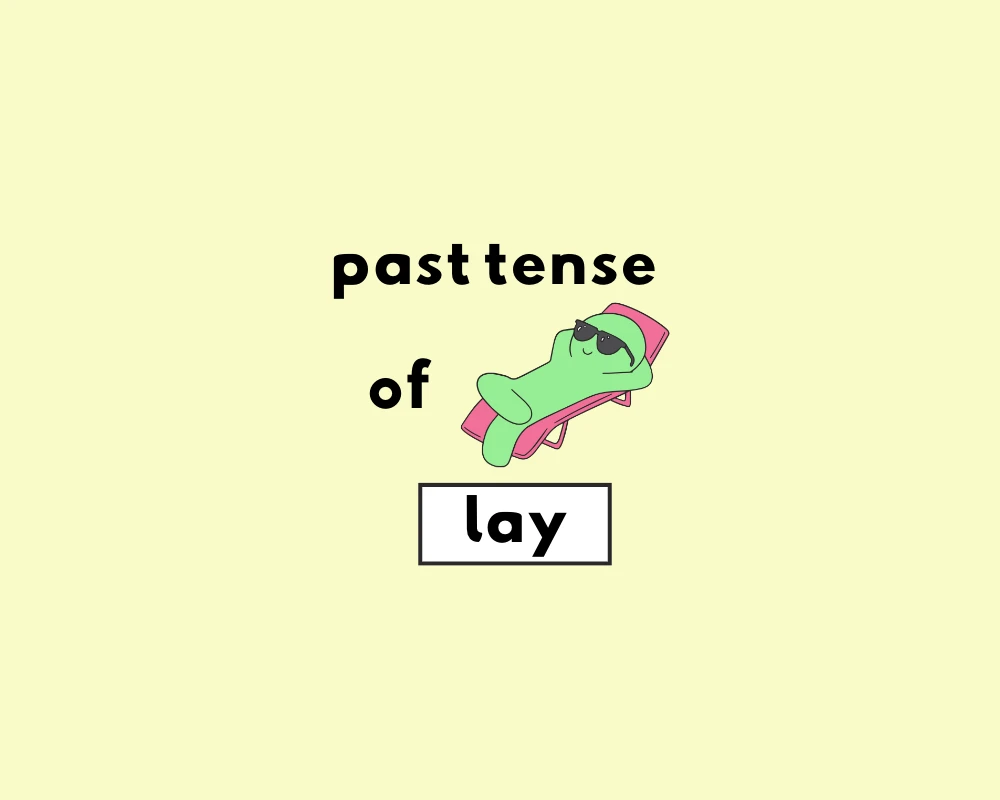
Contents
Toggle
“Lay down” vs. “lie down”
This ubiquitously confused pair, to be blunt, is a doozy: lay down vs lie down, which is it!? To really truly understand the difference between the two, you need to keep reading. If you want the short answer, look no further.
The short answer: lay vs. lie
To lie down is “to assume a horizontal position—often used with down“. For example, ‘I’m going to go lie down’ uses correct English. To lay something down, is a transitive verb: ‘we lay down the cement first’. Lie down is intransitive (sentence objects or action-recipients are not required). A way to think about the difference (between transitive and intransitive) is that the action stops and ends with the actor or doer itself. Sleeping, for example, is intransitive: sleeping isn’t something that we do to other people or things, rather it’s a state of being that we go through.
To further obstruct things, the verb ‘to lie‘ has a separate meaning in English, and that’s to say something that’s false or untrue. As in, to ‘tell a lie’, is normally considered a bad thing, and is frowned upon by the majority. Point of this introduction is to say this: lie/lay/laid are a notorious grammatical “throuple”, so learning the difference is its own feat.
What’s the past tense of lay?
The past tense of the base verb ‘lay‘ (rhymes with pay) is laid (rhymes with paid). ”To lay” only has one past tense form, which is laid. There is no other past tense of the transitive verb, ‘lay‘. Lay is in the present tense.
What does lay/laid mean?
Merriam-Webster defines the verb lay as, “put down, especially gently or carefully.”. Also, “put down and set in position for use”. In other words, to lay down something means “to place something down flat,” while lie means “to be in a flat position on a surface.” So, if I’m going to go lie down, I could say, ‘I’m lying down for a bit’ versus, ‘laying down cement takes time and effort’.
Here’s another way of looking at it, to ‘lay something down‘ requires for that thing (whatever it is, let’s call it a blanket) to be placed down some where, on some thing. ‘Lay the blanket on the grass’ is correct. To lie down literally (because of gravity) means lying on something, but linguistically there’s a distinction to be made, albeit it’s subtle.
Forms of lay

Examples of the word lay used in sentences
1. The next morning, she lay curled in his arms for awhile before moving.
2. For a moment his hand lay there, and then he squeezed hers.
3. She lay for a long time in that position.
4. He lay with his head propped high on the pillows.
5. She lay down, hugging it.
Examples of the word laid used in sentences
1. Once the carpet was laid, it would be ready for occupants.
2. She laid her head on his chest and wept.
3. He laid the blanket out and sat.
4. Rinsing the razor, he laid it aside and wiped his face with the towel.
5. Jackson laid his head back and closed his eyes.
Origin of the word lay/laid
From etymology online on lay/laid (v.):
to cause to lie or rest,” Old English lecgan “to place on the ground (or other surface); place in an orderly fashion,” also “put down” (often by striking), from Proto-Germanic *lagojanan.
Learn more about verbs
- What are regular and irregular verbs?
- Transitive and intransitive verbs?
- What are verbs?
- Past tense of spread?
- What’re personal pronouns?
- What’s the difference between they’re, their, and there?
- Whose vs who’s?
Sources
- Merriam-Webster, Definition of lay.
- Etymology online, Origin of lay.
- Theasaurus.com, Synonyms of lay.
- Your dictionary, Lie down.










